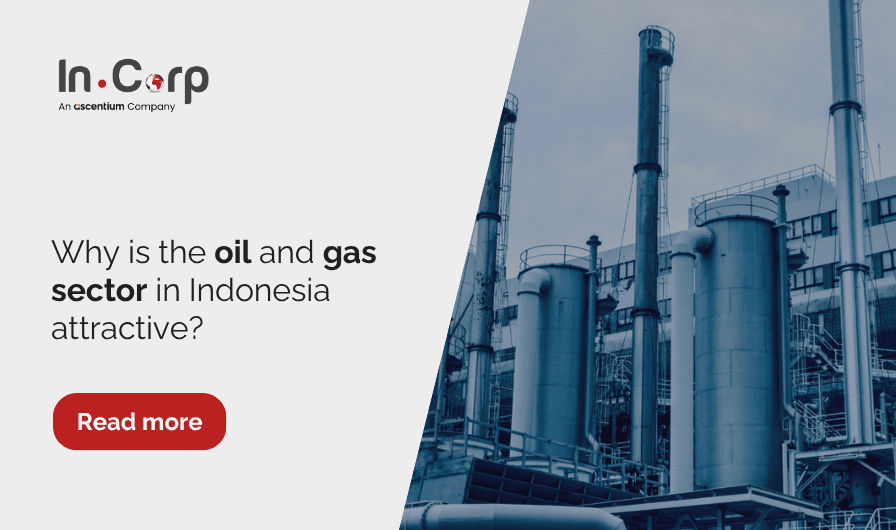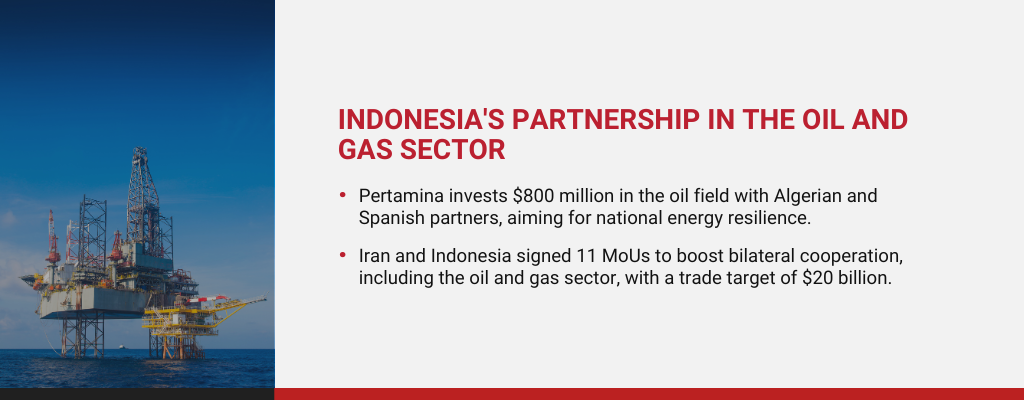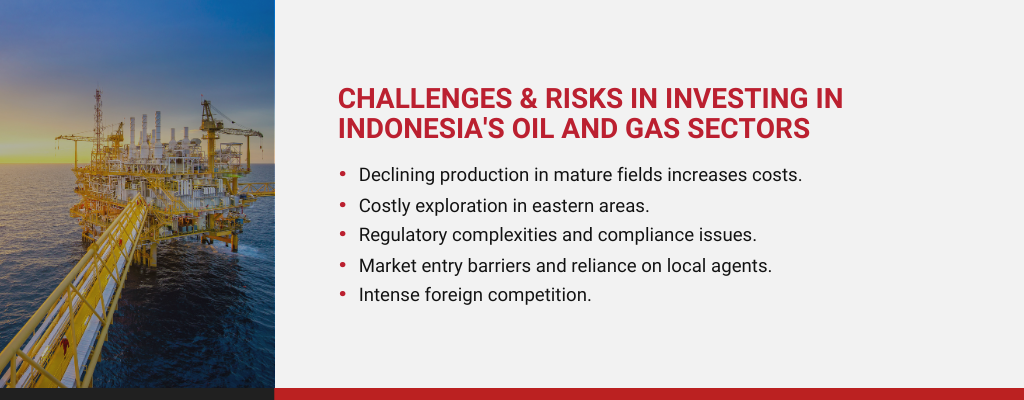As a country with abundant natural resources, Indonesia offers a lucrative investment landscape in the oil and gas sector. As energy demand grows, the country’s vast reserves present an enticing opportunity for investors looking to tap into this thriving market.
This article highlights the essential steps and strategies for navigating Indonesia’s oil & gas industry. From exploring potential ventures to understanding regulations and risk management, investors can make informed decisions and capitalize on promising opportunities.
Why the oil and gas sector is important
Minister of Energy and Mineral Resources, Arifin Tasrif, highlighted the key role of Indonesia’s oil and gas sector in the country’s energy transition. As the request for oil and gas continues to grow, the development of the gas sector becomes increasingly important to bridge the transition from conventional fossil fuels to sustainable renewable energy sources.
To tap into Indonesia’s vast upstream gas and oil potential, the government has set ambitious targets for the future. By 2030, the Indonesian government aims to achieve substantial oil production of 1 million barrels and 12 billion standard cubic feet per day (BSCFD) of gas. The target is set primarily to meet domestic energy needs.
The program will propel the nation toward a sustainable and resilient energy future by strategically channeling resources and investing in innovative technologies.
This forward-thinking approach aligns with Indonesia’s commitment to contributing to global efforts in combating climate change. It also comes as proof of transitioning towards a cleaner and more environmentally conscious energy landscape.
Investment opportunity in the oil and gas sector
As the recently signed agreements highlighted, Indonesia’s oil and gas sector offers promising investment opportunities. Some of these opportunities include:
800 million USD investment in the Algerian oil field
Pertamina, Indonesia’s state-owned enterprise in the oil sector, recently announced a contract renewal for developing an oil field in Algeria. The contract is made with Algerian and Spanish partners.
The project’s investment reaches over 800 million USD. The project will work around plans to drill 12 oil wells, construct an extraction plant for liquefied petroleum gas, and a solar energy project. The contract renewal is part of Pertamina’s efforts to attain national energy resilience.
Iran and Indonesia signed an oil and gas sector agreement
Officials from Iran and Indonesia recently signed 11 memorandums of understanding (MoUs) to enhance bilateral cooperation. These agreements span various sectors, including gas and oil, preferential trade, visa waivers, cultural exchanges, pharmaceutical products, science, and technology.
In the first quarter of 2023, trade between Indonesia and Iran reached $54.1 million. The recently signed MoUs are intended to further amplify the trade volume between the two countries, with a target of reaching 20 billion USD.
Read more: Positive Investment List improves investment in Indonesia
The risks and challenges
Approximately 90% of Indonesia’s oil and gas production originates from mature fields in western regions, such as Sumatra and the Kalimantan islands. These fields are experiencing a decline, necessitating exploration in the deep-sea or offshore areas of the eastern part of Indonesia.
However, the area’s current state presents new opportunities yet requires significant investment and advanced technology. While in terms of market entry, foreign companies can sell directly to the government and state-owned enterprises.
Nevertheless, successful project development and the delivery of products or services often rely on local agents or distributors. Often mandated by law or considered crucial due to established relationships or a proven track record with government agencies.
Moreover, the Indonesian oil and gas market is highly competitive, boasting a robust presence of foreign businesses, mainly hailing from countries such as the US, Japan, China, Korea, Australia, Russia, France, and Singapore.
How to capitalize on the Indonesian oil and gas sector
The Indonesian government is actively implementing policies and regulatory instruments tailored to cater to the needs of industry players in the oil and gas sector.
Mainly, improvements have been made to the terms and conditions of oil and gas working area auctions, including:
- Enhancing the sharing split of First Tranche Petroleum (FTP) by 10% shareable;
- Implementing an open bid system for signature bonuses;
- Providing flexibility in profit-sharing contract forms;
- Set the DMO price at 100% ICP;
- Eliminating the obligation to relinquish a portion of the working area during the first three years;
- Removing cost ceilings for Cost Recovery, and
- Facilitating data access through membership mechanisms.
The government is also striving to improve the terms and conditions for existing blocks to boost production, refine upstream data, and streamline licensing processes.
The Ministry of Energy and Mineral Resources (ESDM) and the Ministry of Finance have agreed to provide facilities and incentives to support the oil and gas industry. These facilities are also expected to be extended to activities that reduce carbon emissions.
Moreover, to ensure legal certainty for oil and gas investments, the government supports the revision of Law No. 22/2001 concerning oil and gas. For cooperation contracts, the government is simplifying regulations on Gross Split cooperation contracts to ease business.
Conclusion
To sum up, the Indonesian government still considers oil and gas as one of the sectors that support Indonesia. The combination of supporting policy instruments and the growing demand for oil & gas sectors provides businesses with substantial investment opportunities in this sector.
For investors seeking to seize opportunities in Indonesia’s flourishing sector, InCorp Indonesia offers invaluable assistance, particularly in establishing a business presence.
With a wide range of services covering company registration and KITAS, InCorp Indonesia streamlines the investment process, ensuring every investor’s seamless and efficient experience.
Contact our experts to learn how to capitalize on this thriving sector by clicking the button below.
Get in touch with us.
What you'll get
A prompt response to your inquiry
Knowledge for doing business from local experts
Ongoing support for your business
Disclaimer
The information is provided by PT. Cekindo Business International (“InCorp Indonesia/ we”) for general purpose only and we make no representations or warranties of any kind.
We do not act as an authorized government or non-government provider for official documents and services, which is issued by the Government of the Republic of Indonesia or its appointed officials. We do not promote any official government document or services of the Government of the Republic of Indonesia, including but not limited to, business identifiers, health and welfare assistance programs and benefits, unclaimed tax rebate, electronic travel visa and authorization, passports in this website.





